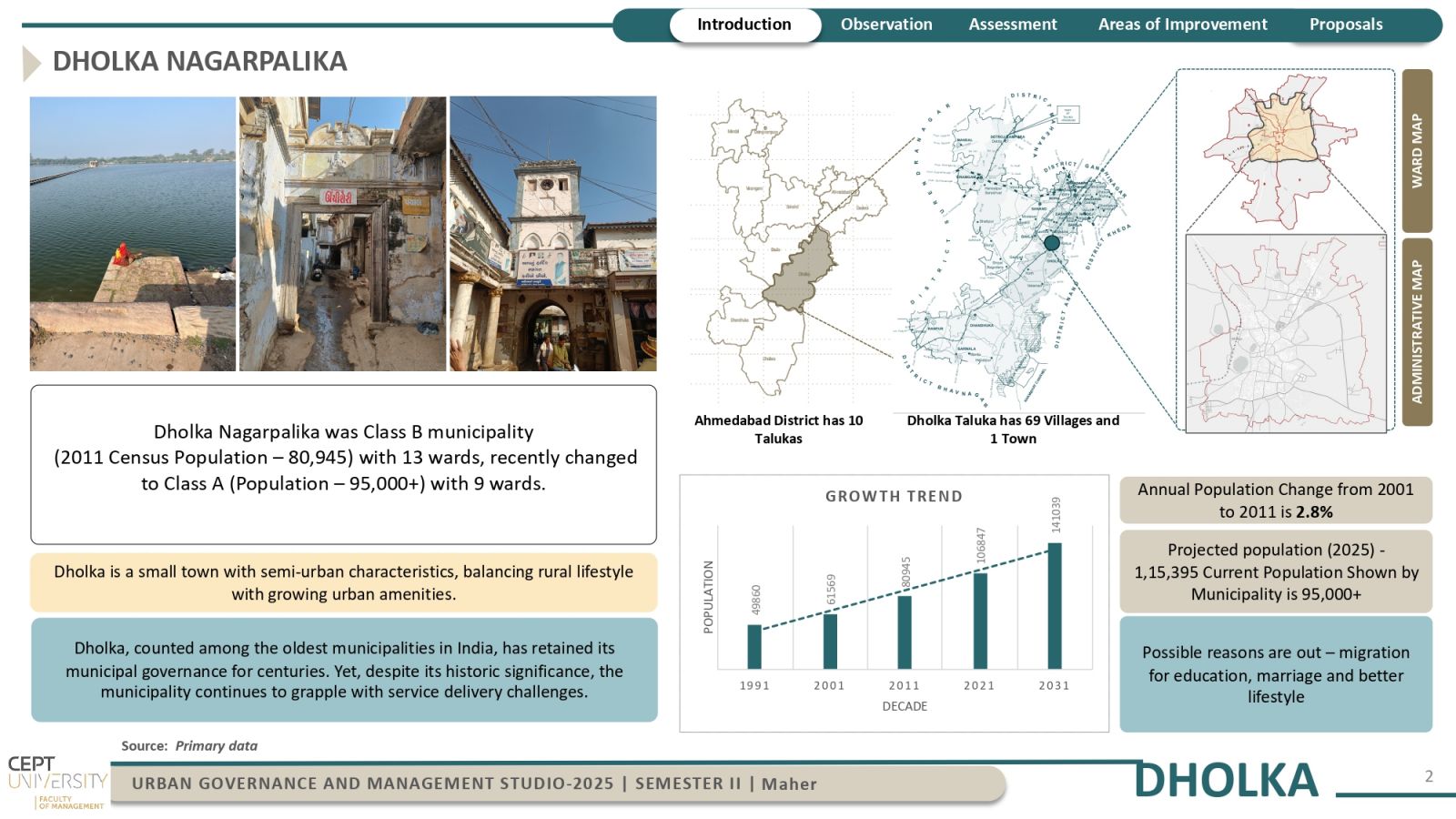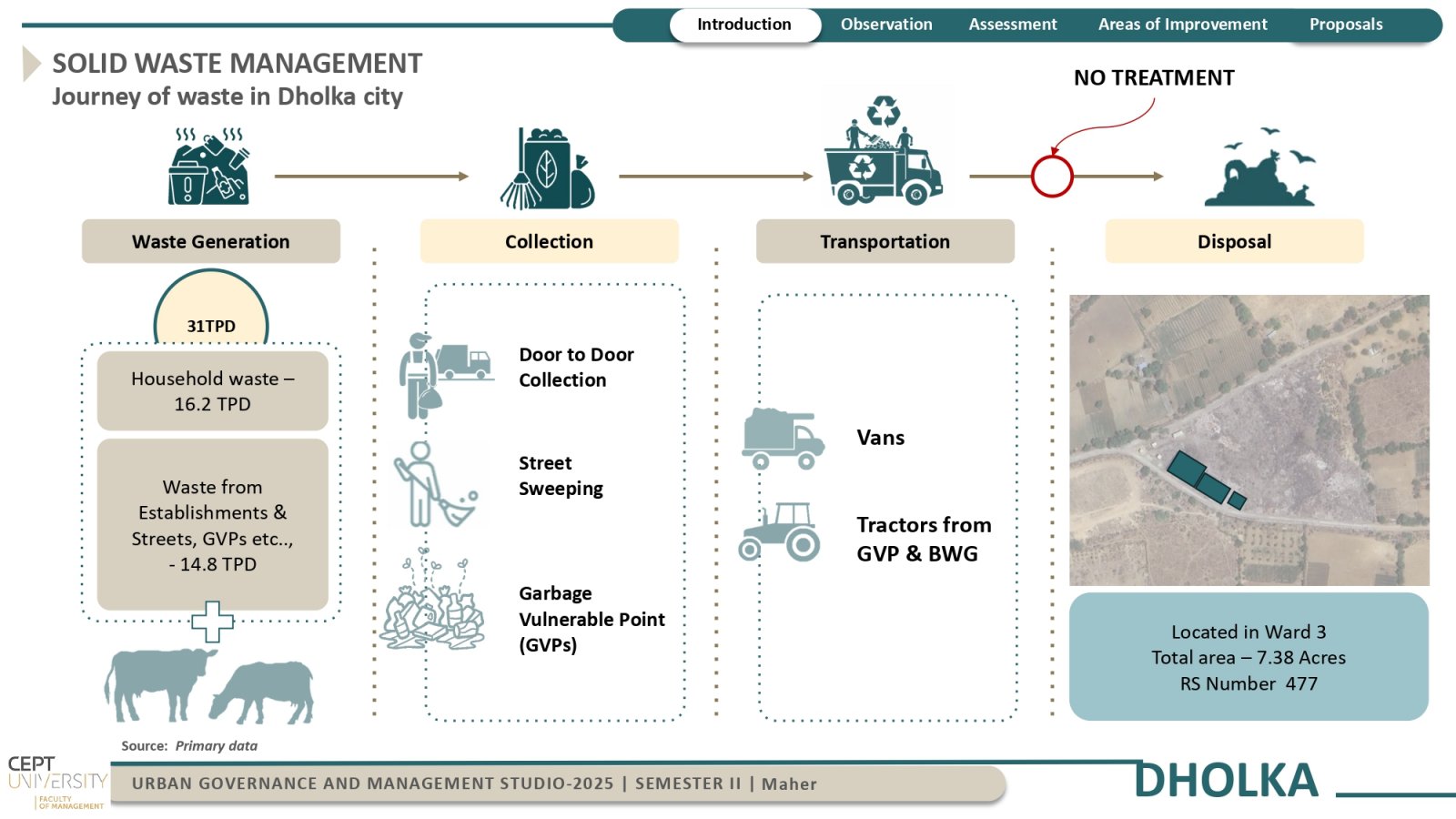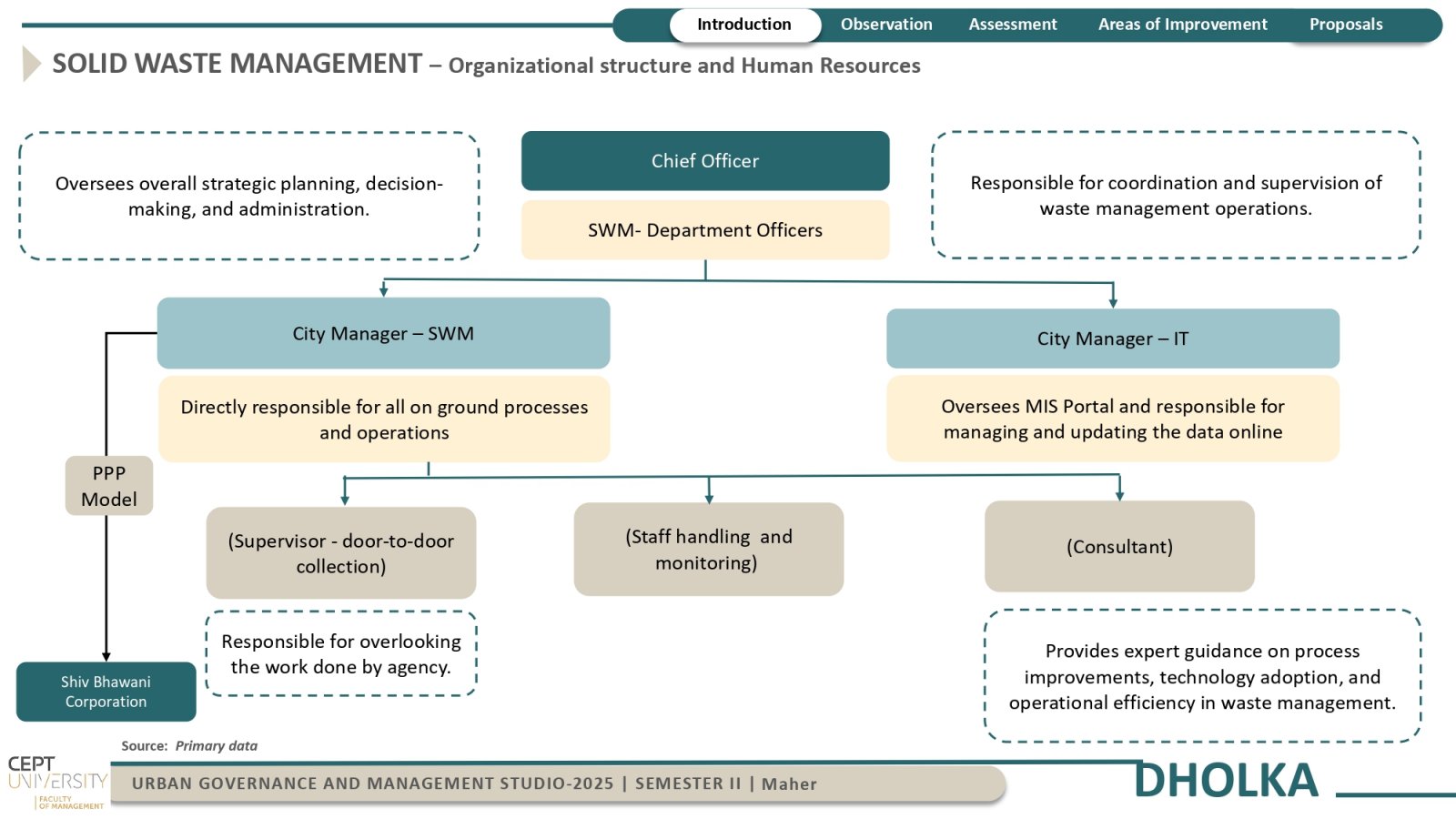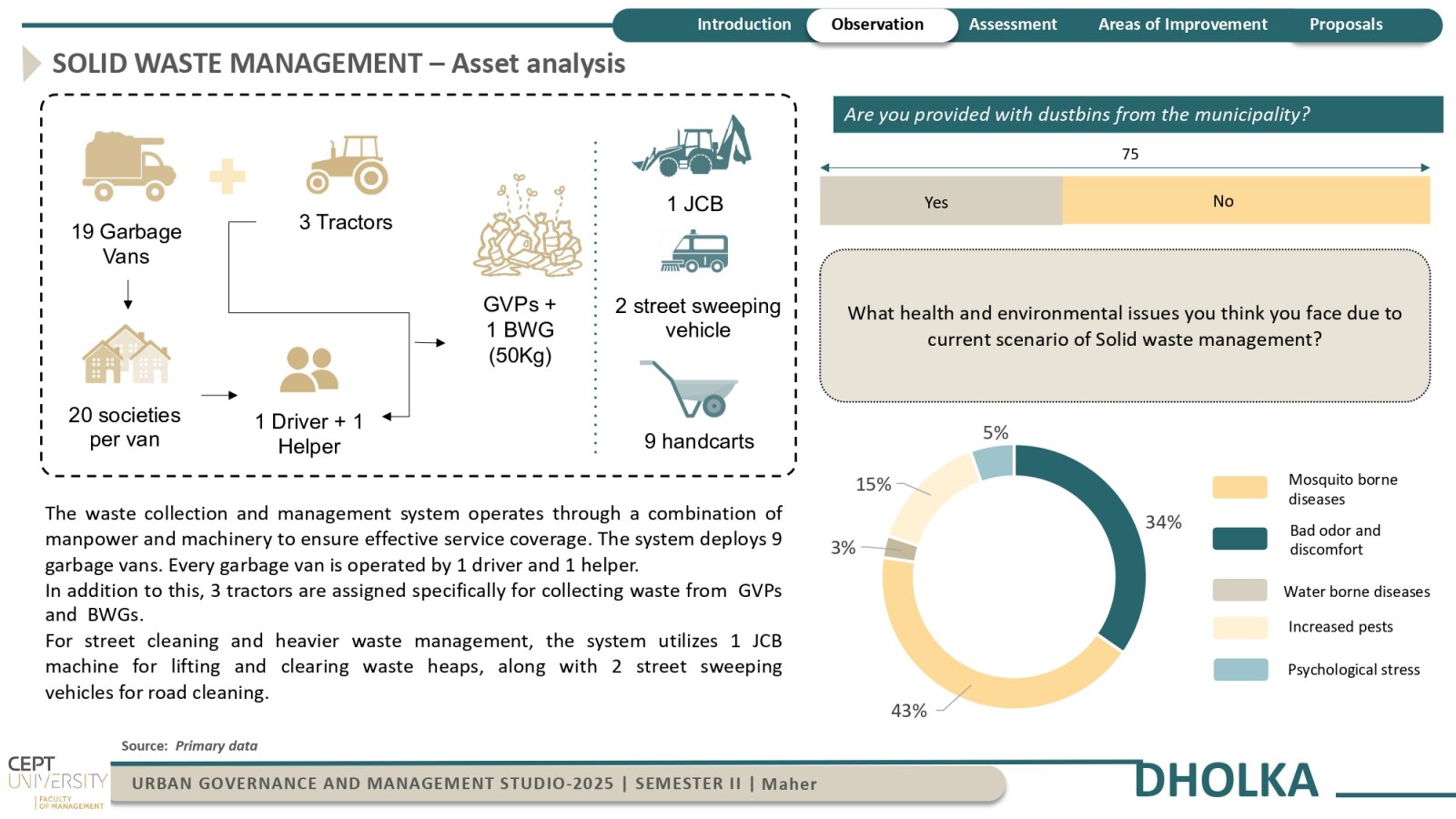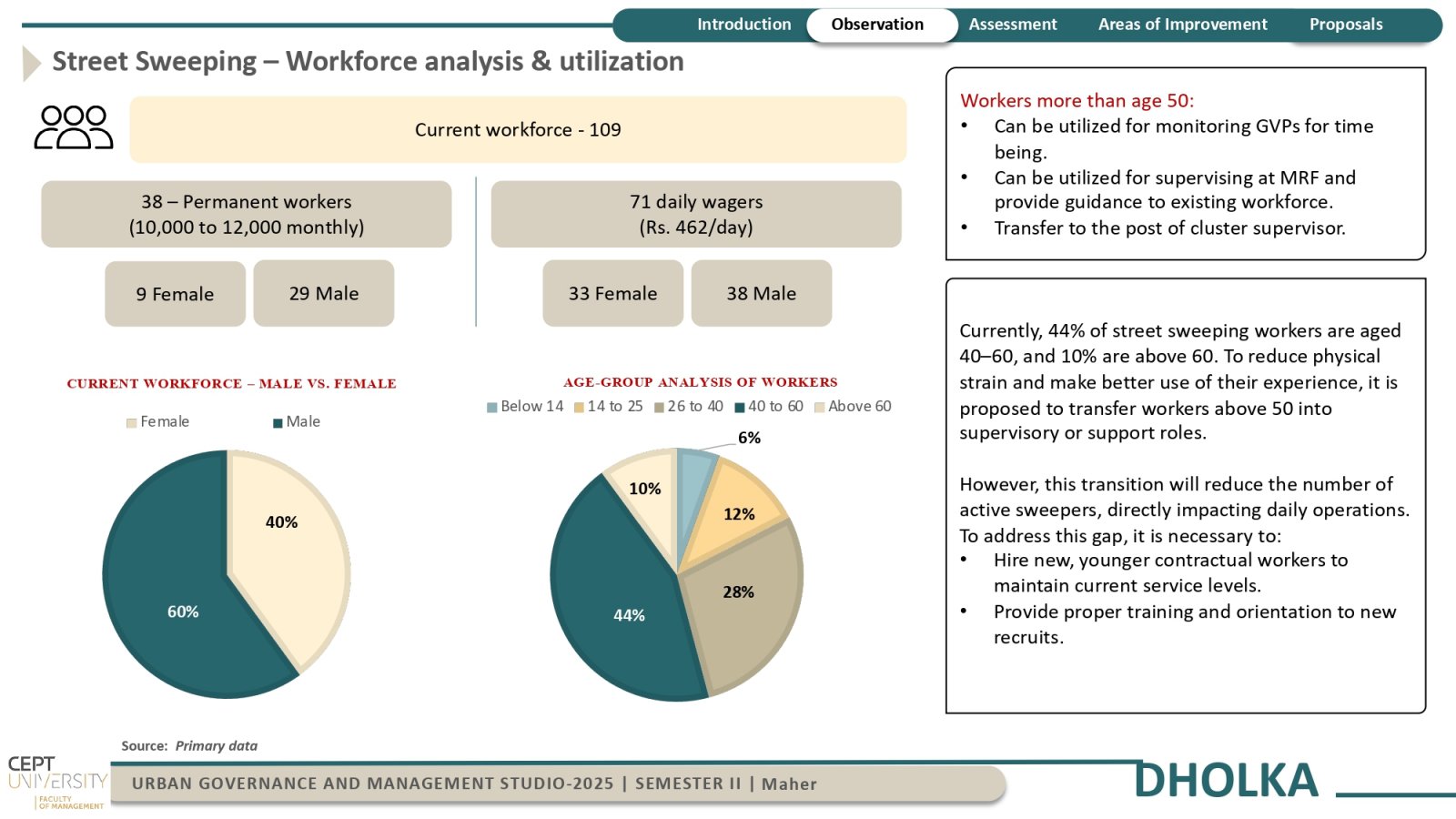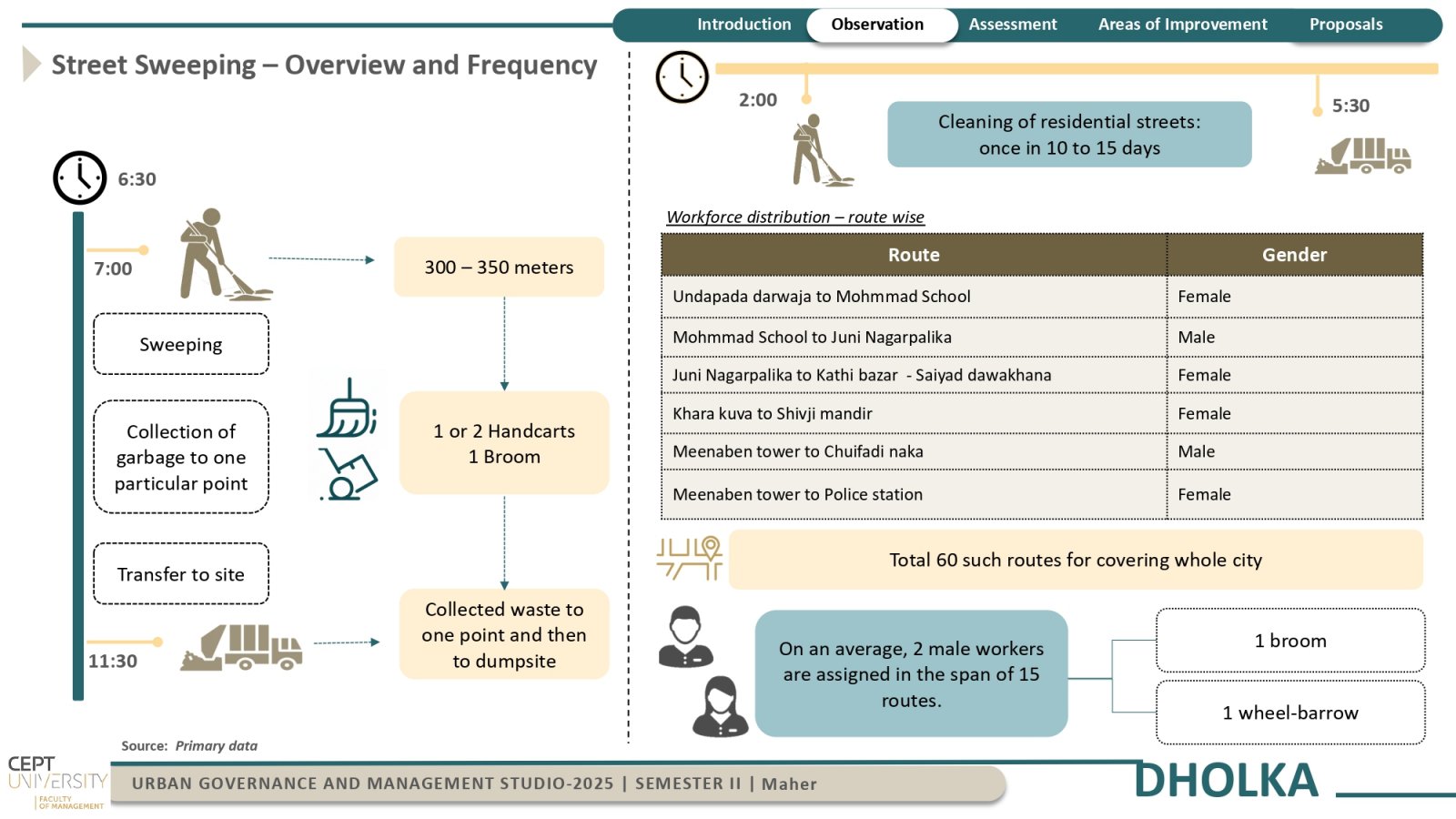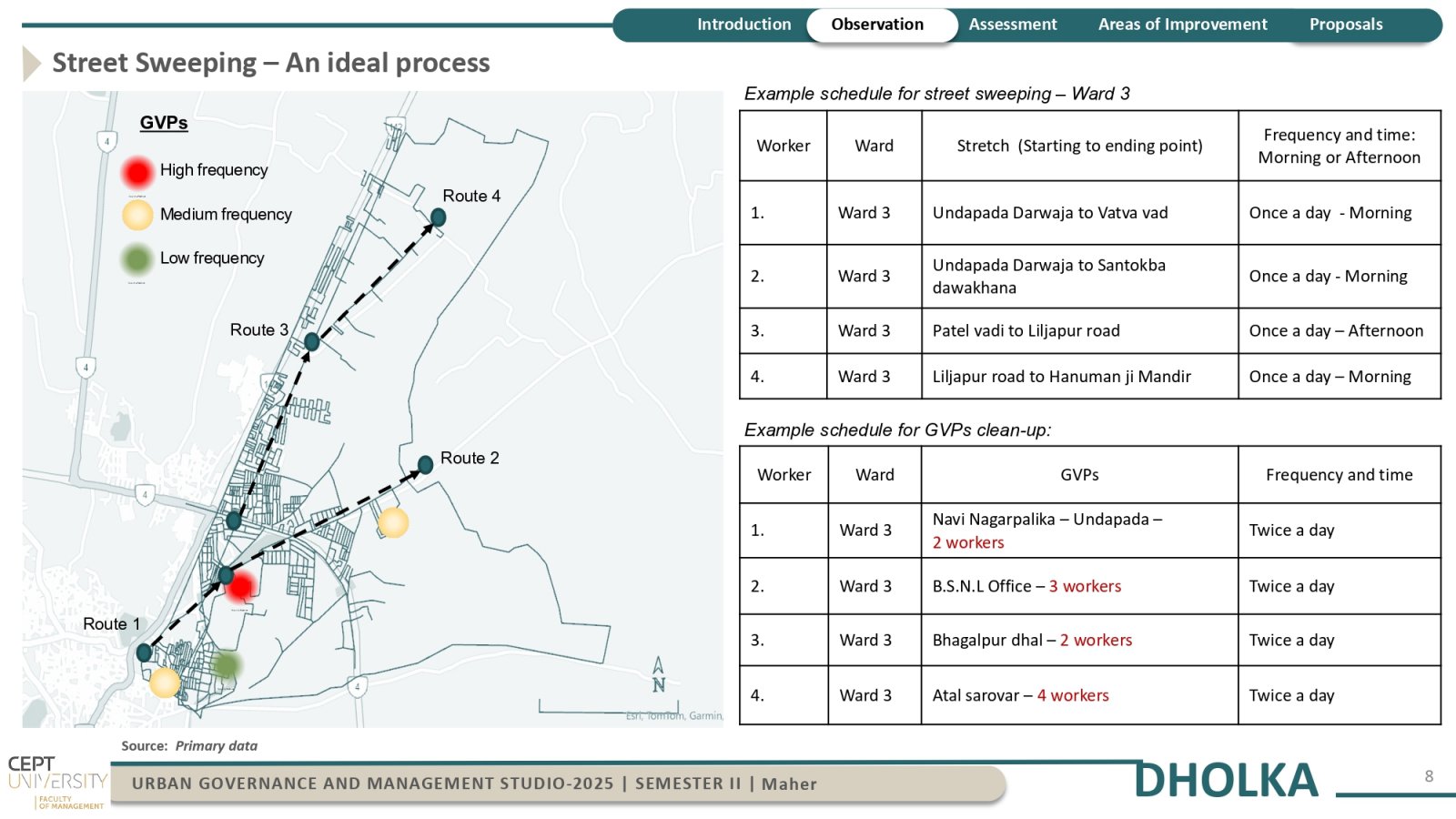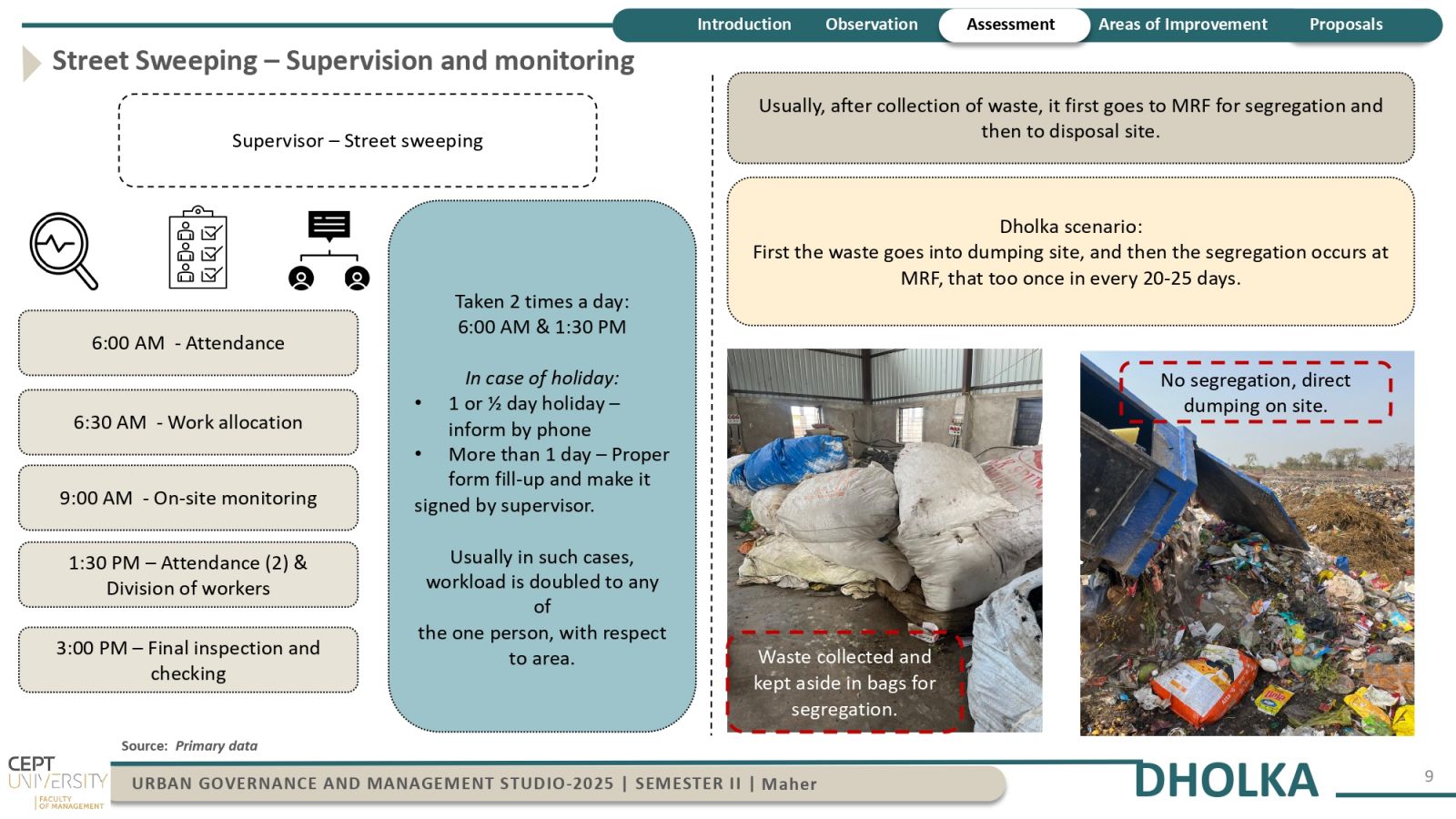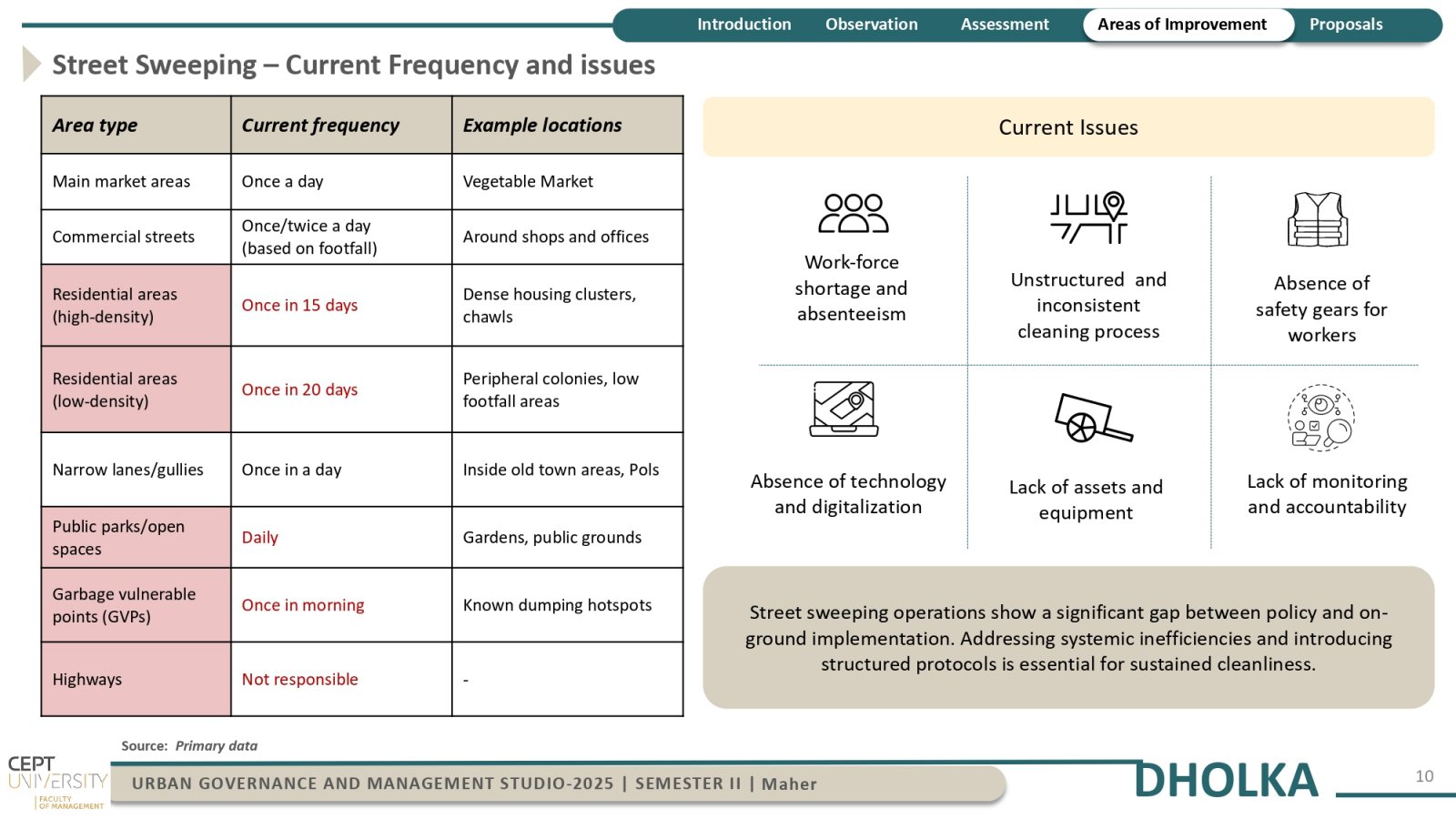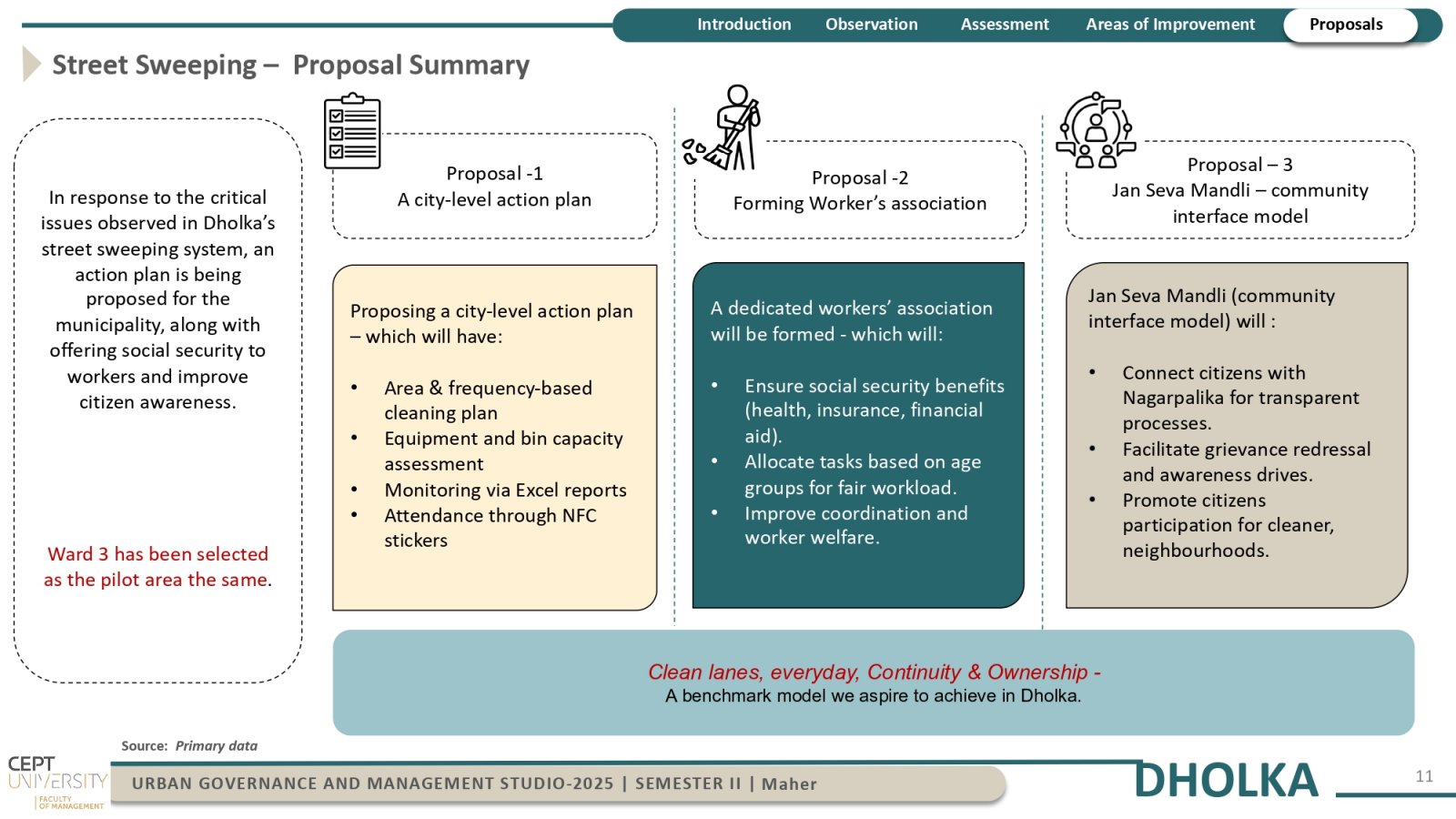Your browser is out-of-date!
For a richer surfing experience on our website, please update your browser. Update my browser now!
For a richer surfing experience on our website, please update your browser. Update my browser now!
In this studio, the Solid Waste Management system of Dholka was studied to understand its operational structure, existing challenges, and service delivery patterns. The work involved a detailed assessment of waste generation patterns, area-wise collection frequencies, and infrastructure availability, including vehicles, equipment, and bin placements. Field surveys and stakeholder consultations were conducted to map service coverage, identify garbage vulnerable points, and assess manpower allocation. Operational processes like door-to-door collection, street sweeping, and waste transportation were documented. The studio also reviewed monitoring practices such as attendance marking, route planning, and record-keeping formats to identify service gaps and system inefficiencies.
